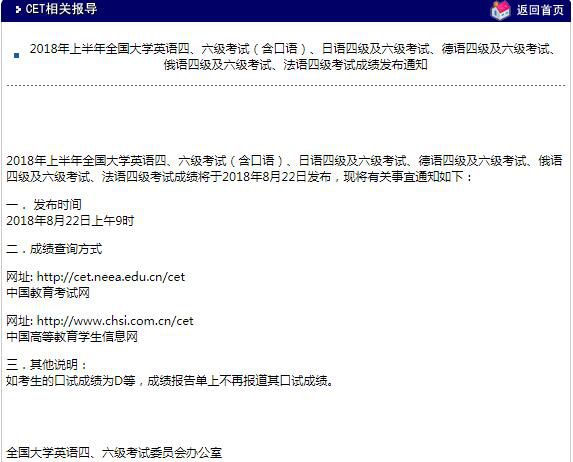2008年职称英语考试:理工类复习资料(五)
|
Underground Coal Fires—a Looming Catastrophe 下面再看以上方法在阅读理解细节题中的应用: 1. According to the first paragraph, one of the warnings given by the scientists is that Underground Coal Fires — a Looming(即将到来的) Catastrophe Coal burning deep underground in China, India and Indonesia is threatening the environment and human life, scientists have warned. These large-scale underground blazes cause the ground temperature to heat up and kill surrounding vegetation, produce greenhouse gases and can even ignite forest fires, a panel of scientists told the annual meeting of the American Association for the Advancement of Science in Denver. The resulting release of poisonous elements like arsenic and mercury can also pollute local water sources and soils, they warned. vegetation 植被 1. According to the first paragraph, one of the warnings given by the scientists is that A. underground fires loom large in the forests. B. coal burning deep underground is found in China. C. poisonous elements released by the underground fires can pollute water sources. D. arsenic and mercury are the most poisonous elements to water sources. 「答案」:C 2. According to the third paragraph, what will happen when the underground heat does not disappear? “Coal fires are a global catastrophe,” said (Associate Professor Glenn Stracher of East Georgia College in Swainsboro, USA.) But surprisingly few people know about them. Coal can heat up on its own, and eventually catch fire(着火) and burn, if there is a continuous oxygen supply. The heat produced is not caused to disappear and under the right combinations of sunlight and oxygen, can trigger spontaneous catching fire and burning. catch fire 着火 set fire 纵火 2. According to the third paragraph, what will happen when the underground heat does not disappear? A. Coal heats up on its own and catches fire and burns. B. The underground oxygen will be used up. C. Poisonous fumes and greenhouse gases will be accumulated underground. D. There will be an increase of abandoned mines. 「答案」:A 课文讲解(3)~(5)题 3. What did Stracher analyze in his article published in the International Journal of Coal Ecology? This can occur underground, in coal stockpiles(储备物资), abandoned mines or even as coal is transported. Such fires in China consume up to 200 million tones of coal per year, delegates were told. In comparison, the U.S. economy consumes about one billion tones of coal annually, said Stracher, whose analysis of the likely impact of coal fires has been accepted for publication in the International Journal of Coal Ecology. 3. What did Stracher analyze in his article published in the International Journal of Coal Ecology? A. Annual consumption of coal in U.S. B. Annual consumption of coal in China. C. How long coal fires has lasted in the northern region of China. D. Coal fires can have an impact on the environment. 「答案」:D 4. Which of the following statements about Paul Van Dijk is NOT true? Once underway, coal fires can burn for decades, even centuries. In the process, they release large volumes of greenhouse gases, poisonous fumes and black particles into the atmosphere. The members of the panel discussed the impact these fires may be having on global and regional climate change, and agreed that the underground nature of the fires makes them difficult to protect. One of the members of the panel, Assistant Professor Paul Van Dijk of the (International Institute for Geo-Information Science and Earth Observation in the Netherlands, has been working with the Chinese government to detect and monitor fires in the northern regions of the country). 4. Which of the following statements about Paul Van Dijk is Not true? A. He was one of the scientists who have warned against the threats of underground fires. B. He has detected and monitored underground fires in Netherlands. C. He has worked with the Chinese government on the underground fires issue. D. He works for a research institute in the Netherlands. 「答案」:B 5. According to the fifth paragraph, what is the suggested method to control under ground fires? Ultimately, the remote sensing (远程感应)and other techniques should allow scientists to estimate how much carbon dioxide these fires are emitting. One suggested method of containing the fires was presented by Gary Colaizzi, of the engineering firm Goodson, which has developed a heat-resistant grout(水泥浆)(a thin mortar(灰浆) used to fill cracks and crevices), which is designed to be pumped into the coal fire to cut off the oxygen supply. 5. According to the fifth paragraph, what is the suggested method to control under ground fires? A. Using remote sensing technique. B. Controlling the release of carbon dioxide. C. Making the soil heat resistant. D. Cutting off the oxygen supply. 「答案」:D |








